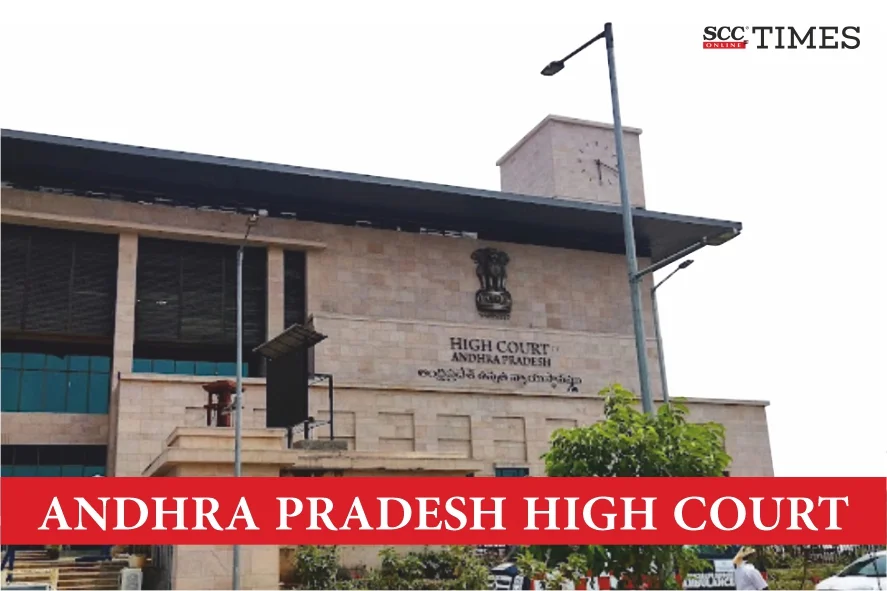Andhra Pradesh High Court: In an appeal filed under Section 37 of the Arbitration and Conciliation Act, 1996 (‘the Act’) challenging the order dated 27-08-2024, the Division Bench of Ravi Nath Tilhari* and V. Srinivas, JJ., found force in the submission that by the order dated 27-08-2024, the appellant’s right to file a written statement could not be forfeited, as they did not file the written statement within the time provided by the Civil Procedure Code, 1908 (‘CPC’). From the perusal of the forfeiture order of filing the written statement, it appeared that because of rejection of application seeking to refer the parties to arbitration, the right to file the written statement was also forfeited on the same date.
The Court stated that simply because the application seeking to refer the parties to arbitration was rejected, it could not be that on the same date the right to file written statement was also forfeited. The Court stated that the order dated 27-08-2024, rejecting the arbitration application was maintained. However, the docket order dated 27-08-2024, passed in the suit forfeiting the right to file written statement could not be sustained.
Background
In the present case, the respondent filed a suit for recovery of money with subsequent interest. The transaction between the respondent and the appellants was for execution of contract work for mechanical erection of three units of Turbine, Generator, Condenser, High Pressure Piping and connected works at KSK Mahanandi Power Plant, Akaltara, Jangir, Champa District, Chhattisgarh by the appellant. The agreement dated 02-08-2011 (‘the agreement’) was entered with agreed terms and conditions signed by the respondent and appellants.
The appellants filed an application under Section 8(1) of the Act to refer the suit dispute to an arbitrator as agreed under Clause 17 of the agreement. Clause 17 of the agreement was comprehensive and covered any dispute. It was binding on the parties and so the request was made to refer the parties to the arbitration. The appellants did not file any written statement in the suit.
The respondent contended that the statutory period of 90 days for filing counter and written statement had lapsed. The respondents further contended that the Clause 17 of the agreement was confined to the execution of work, but not for payment of work.
The Trial Court stated that simply because the dispute was raised regarding payment of interest on agreed amount, it could not become an arbitral dispute between the parties and on that ground, the matter could not be referred to arbitration. Further, the Trial Court by another order dated 27-08-2024, forfeited the right to file written statement.
Analysis, Law, and Decision
The Court stated that in the present case of suit for the recovery of money, balance of the amount might be because of the agreement, but the question was whether such dispute for recovery of the balance of the amount was a dispute which was covered under Clause 17. The respondent’s case was that it was mutually agreed that the appellants should pay Rs.70,22,561, out which Rs. 30 lakhs were also paid on six different dates for Rs. 5 lakh each on every date.
The Court stated that the expression ‘any dispute’, though might be very wide but the dispute must relate to the subject and covered under the arbitration agreement. In the present case, the dispute was mutually resolved as it was mutually agreed, for payment of certain amount, out of which, part of the amount had been paid. The suit was filed for the remaining amount, which was settled between the parties, on which point there was no dispute. Thus, the Court stated that the subject matter of the suit, therefore, was non-arbitrable under the agreement.
Regarding the aspect of interest, the Court stated that the interest, which the respondent claimed, was for non-payment of part of the admitted amount/mutually agreed amount. Consequently, the suit for interest was also not arbitrable under the agreement. Thus, the Court found no illegality in the order of the Trial Court on this aspect.
However, the Court found force in the submission that by the order dated 27-08-2024, the appellant’s right to file a written statement could not be forfeited, as they did not file the written statement within the time provided by the CPC. From the perusal of the forfeiture order of filing the written statement, it appeared that because of rejection of application seeking to refer the parties to arbitration, the right to file the written statement was also forfeited on the same date.
The Court stated that the Trial Court ought to have passed separate order, in accordance with law, considering the provisions on the point of filing of the written statement and its forfeiture, also, keeping a view that the procedural law was handmaid of justice and the Court had the power to extend the time for filing of the written statement in the facts and circumstances of each and every case. Simply because the application seeking to refer the parties to arbitration was rejected, it could not be that on the same date the right to file written statement was also forfeited.
The Court stated that the order dated 27-08-2024, rejecting the arbitration application was maintained. However, the docket order dated 27-08-2024, passed in the suit forfeiting the right to file written statement could not be sustained. The Trial Court should consider the aspect of filing of the written statement by the appellants afresh, if an application to that effect was filed before the Court.
[Brothers Engineering and Erectors Ltd. v. Zorin Infrastructure, LLP, 2025 SCC OnLine AP 311]
*Judgment authored by: Justice Ravi Nath Tilhari
Advocates who appeared in this case :
For the Appellants: Varun Byreddy and Sai Charan Chodisetty, Advocates;
For the Respondent: Lanka Sai Prasanthi, Advocate.



